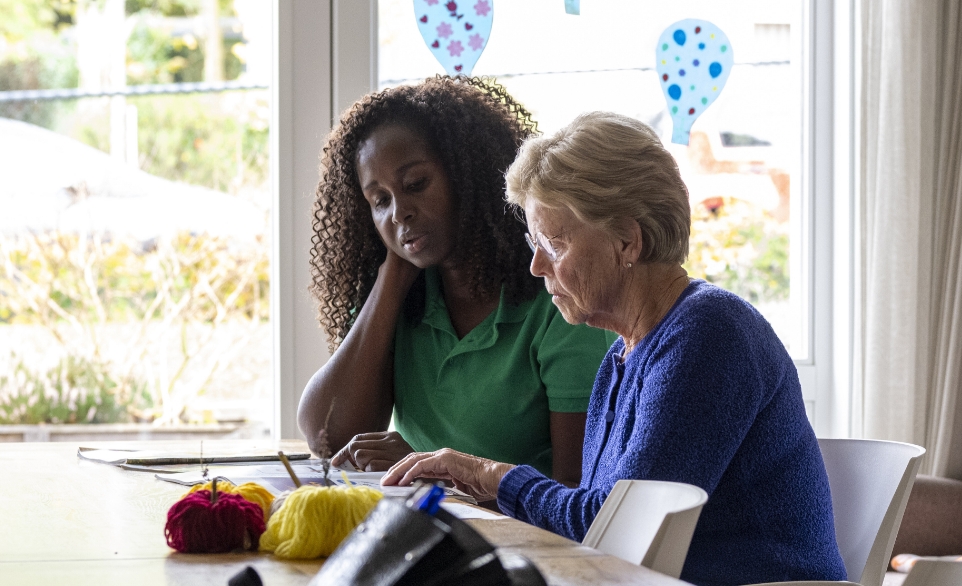
What no one teaches you about leading from day one — and why it matters more than you think.
Starting your own homecare business is exciting, brave, and meaningful work. But for many first-time founders, one thing hits hard and fast:
You’re not just starting a business.
You’re stepping into leadership.
That shift — from carer, nurse, or coordinator to founder and leader — can feel overwhelming. You’re suddenly responsible not only for clients and compliance, but for the team, the culture, the decisions, the vision, and the outcomes. That’s a lot to carry.
The good news? Leadership is a skill. And like any skill, it can be learned — with intention, support, and the right guidance.
Here are 7 essential leadership lessons every first-time care founder should know from day one.
-
Leading is Not the Same as Doing
You may have built your career on being great at your job — whether that’s delivering care, managing cases, or handling operations. But as a founder, your job shifts.
You’re no longer the one “doing” everything.
Now, you’re the one responsible for making sure it all gets done.
That means letting go of perfectionism and embracing delegation (see our blog on this!). It means trusting others to carry the torch — even if they do things differently from you.
Your job is no longer to be the best carer in the room.
It’s to build the best team possible — and support them to shine.
-
Your Energy Sets the Tone
You don’t have to be loud, extroverted, or “corporate” to lead well. But you do have to be aware that how you show up affects everyone around you.
If you’re frantic, reactive, and negative — your team will be too.
If you’re calm, clear, and purpose-driven — that energy spreads.
Even on the hardest days, how you carry yourself matters. That doesn’t mean hiding your struggles — but it does mean staying steady, honest, and hopeful in your leadership presence.
Leadership isn’t about having all the answers. It’s about creating the kind of environment where the team feels safe enough to figure them out together.
-
People Management Is Half the Job
If you thought running a care business was mostly about compliance, scheduling, or paperwork — think again.
Your greatest resource is your people. And managing people takes time, emotional intelligence, and consistent effort.
This includes:
- Giving clear expectations
- Checking in regularly (not just when something goes wrong)
- Providing feedback (and being open to receiving it!)
- Recognising effort and celebrating wins
- Managing conflict with compassion and firmness
- Creating a culture of respect and inclusion
You don’t need to be a trained HR professional — but you do need to care, listen, and lead by example.
-
You Can’t Build Alone
It’s tempting to want to prove you can do it all — especially when it’s your name on the CQC registration, your money on the line, and your reputation at stake.
But solo leadership is a fast track to burnout.
The strongest care businesses are built by people who ask for help early, lean on experts, and surround themselves with other leaders. That’s why Big Sister exists — to give you a team behind your dream.
Even if you’re not in a Big Sister business (yet), don’t isolate yourself. Find mentors. Join networks. Build your inner circle. No founder should lead alone.
-
Every Decision Is a Culture Decision
Whether you’re hiring a new staff member, choosing how to respond to a complaint, or setting your rota policies — every decision shapes your culture.
Culture is what happens when you’re not in the room.
It’s what your team believes is normal, expected, and rewarded.
Ask yourself:
- What behaviours am I tolerating that go against our values?
- What actions am I praising that align with our mission?
- What messages do my decisions send?
Great leaders don’t just talk about values. They build systems and habits that embed them.
-
Leadership Means Seeing the Bigger Picture
When things get tough — a carer quits, a client complains, an audit looms — it’s easy to spiral into survival mode. But leaders must learn to zoom out.
Ask:
- What is this challenge really about?
- What can we learn from it?
- How do we prevent it next time?
- Is this worth my energy right now?
The founder mindset isn’t about putting out fires all day. It’s about building systems that stop the fires from starting in the first place.
That shift — from reactive to proactive — is what separates surviving businesses from thriving ones.
-
Confidence Is Built, Not Inherited
You don’t become a confident leader overnight.
You build confidence through action.
- Every tough conversation you navigate.
- Every decision you make (even the wrong ones).
- Every team member you support.
- Every lesson you learn.
Confidence comes from showing up — especially when it’s hard — and proving to yourself that you’re capable.
If you’re waiting to feel ready before stepping fully into your leadership role, you’ll be waiting forever.
Start where you are, with what you have. The confidence will follow.
Final Thought: You Were Made for This
Leadership in care isn’t for the faint-hearted. It’s messy, emotional, and often underappreciated. But it’s also one of the most rewarding, purpose-driven paths you can take.
You have the heart. You have the vision. And with the right support, you can develop the skills.
Remember:
- You’re not supposed to have it all figured out on day one.
- You’re not alone — others have walked this path.
- You’re capable of growing into the leader your business needs.
You’re not just building a business.
You’re building a legacy.
So, take a breath, hold your head high, and lead forward.
You’ve got this — and we’re right here with you.
Watch more leadership tips in the Homecare Business Blueprint YouTube Playlist
Download the Big Sister Brochure to see how we support leaders like you — from day one and beyond.
Want a leadership mentor in your corner? Book a discovery call and let’s talk.













